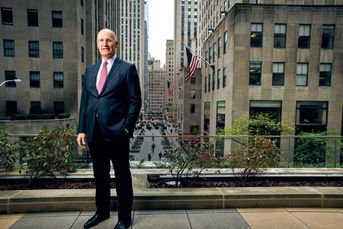Fed, schmed: Pay no attention to those men behind the curtain
We all hang breathlessly on every word Fed officials utter. Why do we do this?
If the economy doesn’t warm up soon, the Federal Reserve says it will step on the gas, buying up bonds to inject more liquidity into the banking system.
Will that turn the economy around? Will it ignite inflation? Will it do nothing — or maybe something other than what’s expected?
Beats me. But I’m actually less interested in what the Fed will do than the fact that we all hang breathlessly on its every word.
True, in today’s securities markets, where 12 nanoseconds seem like an eternity, moves by the Fed have an immediate and huge impact. But in the long run, it’s not certain that the central bank can move either markets or the economy.
Economists, of course, love to debate whether the Fed is making credit too tight or too loose and whether interest rates are too high or too low. Coming from a world which believes that data, models and mathematical calculations are adequate to describe human behavior, economists have no problem viewing the Fed as the chief director of the economy. Few posit that all the Fed’s Oz-like pulling and tugging at the nation’s monetary levers may be a colossal waste of time.
Given my conviction that much of modern economics is mathematically encrusted pseudo-science, I have a hunch that the Fed is much less powerful than we think. As a result, I find the solemnity and seriousness with which we approach the institution to be amusing.
For years, the inscrutable Alan Greenspan was so revered no one dared ask him what the hell he was mumbling about. Now that he has explained his credit bubble mistakes by giving us his long-winded version of “Oops, I goofed,” we still look upon him as a sage rather than as a number-nerd with a big ego.
Ben Bernanke is a more humble sort, for whom the mantle of Wizard does not come naturally. I just hope he doesn’t succumb to the all-too-human desire to be held in awe, which is what we do with the Fed.
Part of the Fed’s Holy of Holies aura, I believe, comes from its arcane activities. After all, I doubt anyone can visualize what the flesh-and-bones people at the 12 Fed banks actually do each day as they carry out the nation’s monetary policy. That process is so abstract, it’s natural to assume the Fed’s economists and statisticians must be doing something important.
Similarly, the endless stream of economic data and statistics that emanate from the Fed also raises the institution’s stature. We all would like to believe that there is some logic to our crazy world, and what better marker of logic is there than reams and reams of numbers coming from experts who seem to understand them.
I’m not proposing that the Fed stop crunching numbers or that the Fed governors get other jobs, or that we do away with our central bank altogether. All I’m saying is, Fed, schmed, don’t make gods out of the people who print our money. The economy is too complex for the all-too-human Fed governors and chairman to know what’s best.
Learn more about reprints and licensing for this article.







